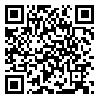Volume 12, Issue 2 (3-2024)
J Diabetes Nurs 2024, 12(2): 2395-2404 |
Back to browse issues page
Research code: 1396.37
Ethics code: Zbmu.I.REC.1396.37
Download citation:
BibTeX | RIS | EndNote | Medlars | ProCite | Reference Manager | RefWorks
Send citation to:



BibTeX | RIS | EndNote | Medlars | ProCite | Reference Manager | RefWorks
Send citation to:
Shahraki moghadam E, Poodineh Moghadam M, Noori Sanchooli H, Azizi N. The Effect of Peer Training and Self-Care Modules on Glycosylated Hemoglobin in Patients with Type II Diabetes. J Diabetes Nurs 2024; 12 (2) :2395-2404
URL: http://jdn.zbmu.ac.ir/article-1-637-en.html
URL: http://jdn.zbmu.ac.ir/article-1-637-en.html
Zahedan University of Medical Sciences & Zahedan University of Medical Sciences , h.noorisanchooli@gmail.com
Abstract: (2333 Views)
Introduction: Education is fundamental to diabetes treatment. Various educational methods do not have the same effects, so this study aimed to compare the effects of peer education and self-learning modules on glycosylated hemoglobin in patients with type II diabetes.
Materials and Methods: In this clinical trial, 60 patients with type 2 diabetes referred to the Zabol diabetes clinic were enrolled. Patients were randomly divided into two groups using coin flips. Patients in the peer group participated in 6 sessions of 30-45 minutes each, conducted over a month (2 sessions per week). In the module group, self-learning packages were provided to patients. The patients in the module group studied at the same time as the peer group sessions. To ensure compliance with the module study, the researcher established telephone contact with patients. Telephone follow-ups were conducted for both peer training and module groups. The self-care scores of patients were assessed before and 12 weeks after the intervention.
Results: The level of glycosylated hemoglobin significantly decreased in patients after participating in peer training (P = 0.032), while the level of glycosylated hemoglobin did not show a significant change before and after participation in the self-learning module group (P = 0.385). There was no significant difference in the levels of glycosylated hemoglobin between the peer training and self-learning module groups after the intervention (P = 0.199).
Conclusion: This study showed that peer education could lead to a reduction in glycosylated hemoglobin levels in patients with type 2 diabetes. Therefore, peer education is an effective method to help control diabetes and can be beneficial in reducing complications in diabetic patients.
Materials and Methods: In this clinical trial, 60 patients with type 2 diabetes referred to the Zabol diabetes clinic were enrolled. Patients were randomly divided into two groups using coin flips. Patients in the peer group participated in 6 sessions of 30-45 minutes each, conducted over a month (2 sessions per week). In the module group, self-learning packages were provided to patients. The patients in the module group studied at the same time as the peer group sessions. To ensure compliance with the module study, the researcher established telephone contact with patients. Telephone follow-ups were conducted for both peer training and module groups. The self-care scores of patients were assessed before and 12 weeks after the intervention.
Results: The level of glycosylated hemoglobin significantly decreased in patients after participating in peer training (P = 0.032), while the level of glycosylated hemoglobin did not show a significant change before and after participation in the self-learning module group (P = 0.385). There was no significant difference in the levels of glycosylated hemoglobin between the peer training and self-learning module groups after the intervention (P = 0.199).
Conclusion: This study showed that peer education could lead to a reduction in glycosylated hemoglobin levels in patients with type 2 diabetes. Therefore, peer education is an effective method to help control diabetes and can be beneficial in reducing complications in diabetic patients.
Type of Study: Research |
Subject:
Diabetic nursing teaching
Received: 2024/05/18 | Accepted: 2024/06/19 | Published: 2024/07/30
Received: 2024/05/18 | Accepted: 2024/06/19 | Published: 2024/07/30
Send email to the article author
| Rights and permissions | |
 |
This work is licensed under a Creative Commons Attribution-NonCommercial 4.0 International License. |




